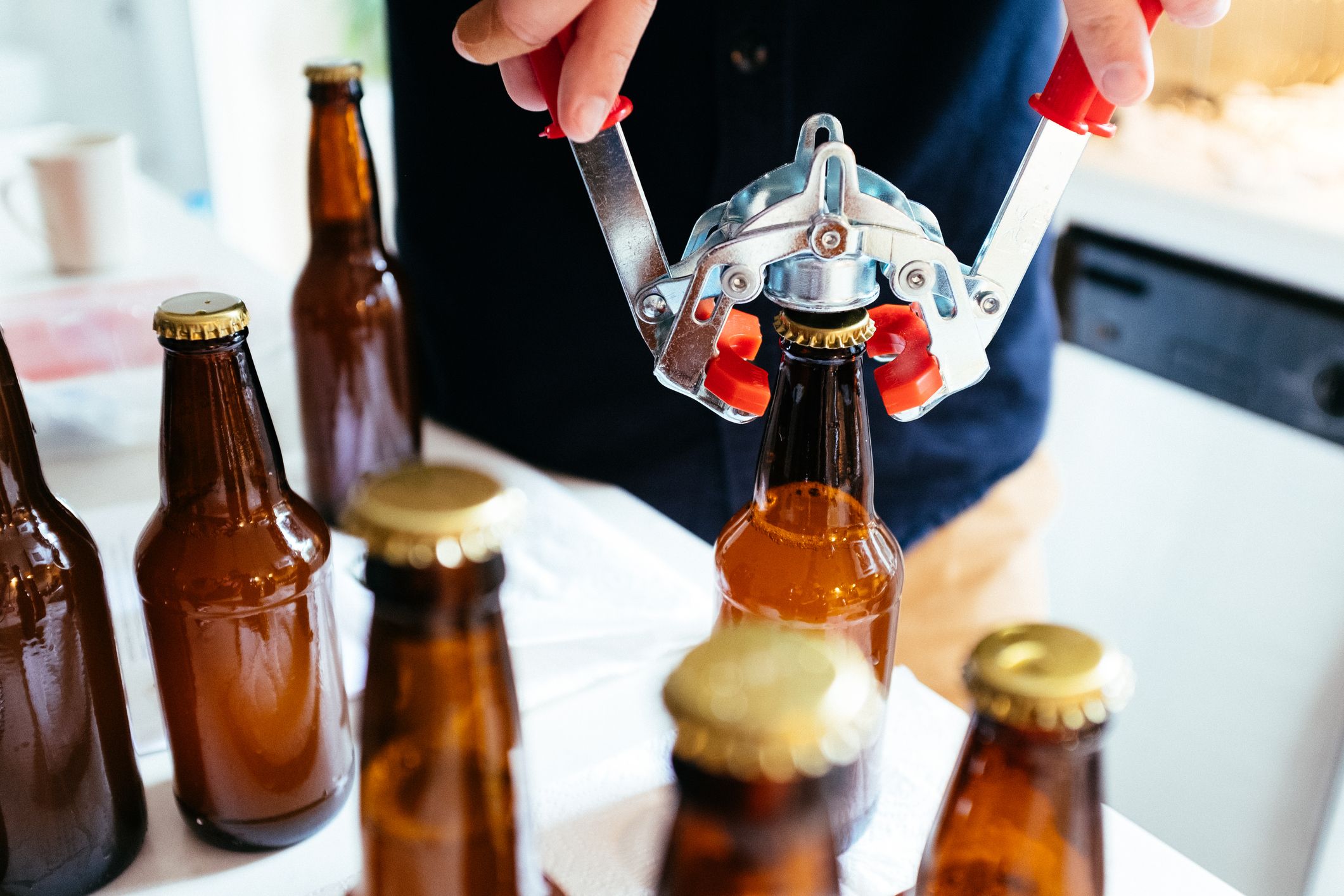The art of brewing has been mesmerizing us for centuries. From casual gatherings to parties and formal meetings to family functions, beer is what turns us up. However, the rising government taxes on bottle shops or the unavailability of your favorite liquor calls for an alternative. What if you can brew your own beer? Yes! You read that right! Although homebrewing is a relatively new phenomenon, it has gained much popularity.
But is homebrewing worthy? As a beer enthusiast, you might be considering a lot of things, including taste, quality, and labor. But what hits your mind first: Is it cheaper to make your own beer? The overall answer should be a yes! Besides having fun or experimenting with new tastes, homebrewing is a cost-effective option to feast your tastebuds with new flavors at a pocket-friendly cost.
Table of Contents
ToggleDoes Brewing Save Money?
Though brewing sounds to be one of life’s great pleasures, not everyone might agree to it. Some beer fanatics may want to maintain the taste of their favorite store-bought brand. In contrast, our creative fellows can really hit the creative stride.
When it comes to home brewing, several aspects impact the overall expense. On average, craft beer from a liquor store costs $5 to $9, while drinking at pubs can burn a hole in your pocket. The expense of your thirst also depends upon the city you live in.
On the other hand, home brewing can lead to considerable savings. A 330ml bottle of all-grain home-brewed may cost about $2 per liter. At first, the initial investments may bother you, but you will find it worth it in the long run.
Choosing Homebrewing over Commercial Beer
It’s not just about cost-effectiveness; homebrewing lends you ultimate control over the ingredients and process. Imagine a refreshing drink free from chemicals and preservatives that perfectly suit your palate. No one can achieve as much precision as you can!
Once you become a brewmaster, your fresh, crafted, high-quality beer is always on hand. In addition, creating your own recipes gives an incredibly satisfying feel. On top of that, its health benefits make it superior to commercial beer. Homebrewed versions are rich in yeast with Vitamin B, lowering the hangovers’ effect.
Cost Estimation by Brewing Type

Extract Brewing
Are you lazy but still want to be creative? Extract brewing is just for you. It’s an affordable option which requires less time and effort. More than that, a smaller investment and fewer tools make it perfect for beginner home brewers.
The technique involves a pre-made malt extract. You will also need a homebrew kit with a fermenter. Let’s pick Coopers’ kit for about $130. Now, you will need Malt extract, hops, and yeast for the ingredients. All the components may cost around $40 for a 19-litre batch. Thus, you can enjoy your home extract brew for just $2 per liter(excluding the equipment investment).
All-Grain Brewing
With the freedom to choose grains, yeast, and hops, All-Grain Brewing offers ultimate control over flavors. However, the technique requires more time and effort, but you will be able to brew an award-winning beer at home.
Regarding the overall expense, you must buy the all-grain brewing system and a fermenter. Brewzilla from Kegland is the most popular one, which costs around $605, and the price of a basic fermenter is $30. The ingredients, grains, hops, and yeasts would cost approximately $39 (For a 19-litre batch).
Hence, your all-grain brewed beer would cost around $2 per liter ( excluding the initial equipment investment). It may be like investing in a fishing boat for cheaper fish, but the sense of achievement and creativity will surpass the price factor.
In conclusion, both methods have almost the same expense. Remember, these are just estimated expenditures. However, the cost of your home-brewed beer depends upon the selection of ingredients, methods, and the choice of your brewing equipment.
Bottling and Storage
A successful homebrewing process calls for proper storage. As we are up to an economic strategy, reusing commercial beer bottles will let you save more. Make sure to clean and sanitize the bottles and caps.
Those willing to invest should buy new bottles, caps, and a capping device. Another substitute is storing your beer in a keg.
Hidden Costs
Spending on equipment, ingredients, and bottling seems to be the total game. But there are some hidden costs associated with homebrewing that you should need to know.
Gas and Electricity Consumption
Though the energy consumption is minimal, we must pay attention to it. You will need natural gas to heat your brew kettles. Also, fermenting and other brewing techniques require electricity, which should be considered to calculate the actual expense.
Brewing Supplies
To achieve that desired flavor and quality, investing in supplies like sanitizers, harvested yeasts, and other nutrients is crucial.
Start-up Gears
Not just brewing kit, you will also need some start-up equipment like a hydrometer, fermenting vessel, and siphon. Moreover, these are reusable and can be counted as a one-time investment.
Maintenance and Replacement
Just like other hobbies, your home brewing gear also demands regular maintenance. Airlocks and tubing calls for frequent inspection and replacement.
Raw Ingredients
Customizing the desired flavor will urge you to spend more on spices, herbs, malts, and other additives. Therefore, buying reasonable beer kits with pre-packed ingredients is better to cut down the expense. However, it will limit you from generating new recipes.
Time and Efforts
Homebrewing isn’t a piece of cake; it’s a time-consuming process. Each batch can consume several hours. Although the time and effort do not add up to the overall expense, it is still a valuable aspect of your personal investment. Furthermore, brewing larger quantities is better than working on smaller batches.
Winding Up
When considering economies of scale, brewing large batches drops the per-unit costs, making homebrewing more advantageous.
Homebrewing with the goal of saving money can ruin the fantastic experience. It’s an art. Limiting yourself to cheaper products and methods will stop you from exploring the fantastic brewery world.
Overall, homebrewing brings a lot of advantages to the table. Firstly, it is cheaper but upholds quality components. Secondly, develop a hobby and bestows a sense of achievement. Lastly, it caters to your taste.

I am a passionate beer connoisseur with a deep appreciation for the art and science of brewing. With years of experience tasting and evaluating various beers, I love to share my opinions and insights with others and I am always eager to engage in lively discussions about my favorite beverage.
















